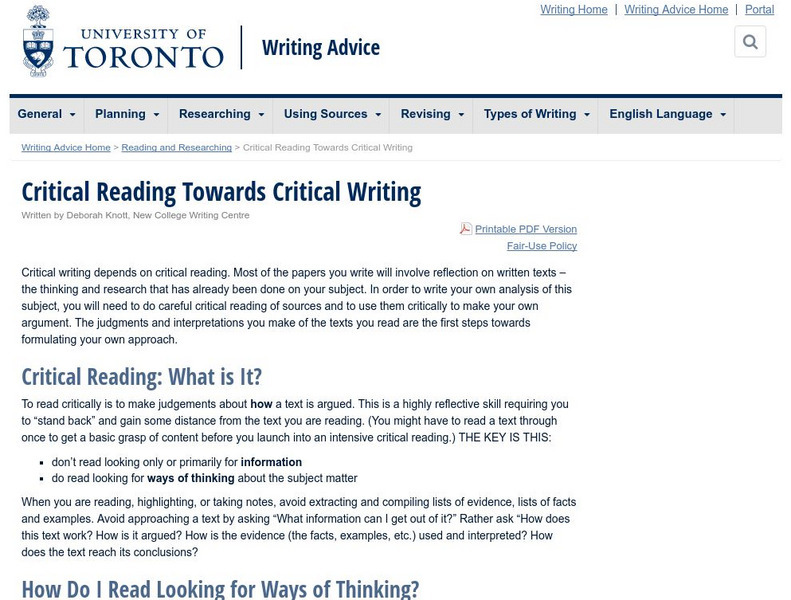Linda Hoyt and Lynnette Brent Sandvold
Point of View: The Outsiders
Incorporate these ideas for tracking point of view into your lessons for S.E. Hinton's The Outsiders. The resource provides ideas for talking about point of view at various points in the novel and provides a prompt for reflection. Also...
Sophia Learning
Sophia: Selecting Topics for Literary Analysis
A series of resources designed to teach students how to write a literary analysis. The first is a screencast [6 mins] that focuses on defining and introducing the parts of a literary analysis. The second is a slide show with seven slides...
Other
Building Characters With Adversity
Extensive and very interesting article advising the reader on how to develop characters through adversity.
Texas Education Agency
Texas Gateway: Review of Dramatic Elements: Practice 4 (English I Reading)
You will be able to recognize the functions of monologue, soliloquy, and dramatic irony in a play.
Texas Education Agency
Texas Gateway: Analyze Point of View in Literary Texts/fiction
This lesson focuses on identifying points of view and recognizing points of view in literature.
Texas Education Agency
Texas Gateway: Analyze the Central Characters in Literary Text/fiction
In this lesson, students will learn some ways that writers reveal the complexity of their characters. By closely analyzing one author's characters, they will come to see how their words, actions, and interactions with one another can...
Texas Education Agency
Texas Gateway: Review of Dramatic Elements: Practice 4 (English I Reading)
In the first few sections, you are going to learn about monologues and soliloquies before you get to that last possibility, dramatic irony. You already know how dialogue works, but you will learn to recognize these additional dramatic...
Texas Education Agency
Texas Gateway: Write Literary Text That Develops Interesting Characters
A learning module that teaches students how to write an literary text with good characterization in four lessons: Introduction, Two Types of Characterization and Two Types of Characters, Choosing Your Characters, and Your Turn.
Ted Nellen
Cyber English (By Ted Nellen): Foreshadowing
This is a glossary entry for the term "Foreshadowing" including a definition, examples, and a link to more information.
University of Pennsylvania
University of Pennsylvania: Repetition
Explains the role of repetition in poetry. Gives several examples of poems that use repetition as a literary device.
Writing Fix
Writing Fix: A Picture Book Writing Lesson: Start With What Isn't There
In this lesson plan, learners will describe a setting, attempting to set a mood for their readers in two paragraphs. Borrowing a technique from Stephen Kramer's two-page introduction to Caves, they will begin with a paragraph that...
Writing Fix
Writing Fix: Same Setting, Different Moods
In this lesson,writers will examine and discuss techniques that writers use to link moods to setting descriptions (Lord of the Flies by William Golding). Next, they will choose a mood and an interesting setting, and they will imagine a...
Other
Bharati Mukherjee
Interview with fiction writer Bharati Mukherjee, famous for her use of symbolism in writing. Includes some biographical information and Mukherjee's opinions on some the symbolic characters she has created and her viewpoint on her own...
Other
Story in Literary Fiction: Humor and Fiction
This essay discusses the effects of humor in fiction, and provides some advice to writers on how to incorporate humor in their writing.
ReadWriteThink
Read Write Think: Writing Leads in the Middle School Class
Great lesson plan in which students read various examples of "leads," or attention-grabbing introductions, in literature. Students then contemplate and develop their own interesting "lead" for a short story and share it with the class....
Other
Clemson University: Literary Essay
Literary essay example by a student discussing two works by Annie Dillard and Kurt Vonnegut, Jr. A good example of a strong literary essay.
University of Victoria (Canada)
The U Vic Writer's Guide: Literary Term: Plot
This page offers a detailed overview of plot, including its various aspects and use in various types of literary works.
Houghton Mifflin Harcourt
Holt, Rinehart and Winston: Elements of Literature: Narrator Chart [Pdf]
Provides an overview of the importance of a narrator in a text and some brief exercises for analysis. Helps students learn more about the role of the narrator in literature, his/her voice, and influence on other characters and events.
University of Victoria (Canada)
The U Vic Writer's Guide: Literary Term: Character and Characterization
This site from The UVic Writer's Guide provides an excellent overview of character and characterization. Content also explores flat and round characters. RL.9-10.3 Analyzing Characters.
E Reading Worksheets
E Reading Worksheets: Irony Worksheets
In this learning module, students will learn more about the three types of irony: verbal, situational, and dramatic. Worksheets, activities, and a PowerPoint lesson are provided to assist with the understanding of irony. This module is...
Caro Clarke
Loving Your Characters Too Much
This article is the fifth in a series that is designed to help new authors with their new novels. This lesson focuses on your main character and what happens when that character lacks character flaws.
Caro Clarke
Caro Clarke: What Is Conflict?
This is the sixth in a series of articles designed to help the new writer with their novel. This article focuses on conflict and how it effects the characters and the plot of the story. W.11-12.3a Narratives
Caro Clarke
A, B, and C Characters
This is the ninth article in a series that focuses on helping the new novel author. This article focuses on what the author calls "A, B, and C Characters," used to describe the different levels of characters.
University of Toronto (Canada)
University of Toronto: Critical Reading Towards Critical Writing
Aimed particularly towards writing about non-fiction, this site describes ways to think about what you read so you can write more clearly. Focuses on analyzing the "ways of thinking" that an author uses so you can evaluate the validity...




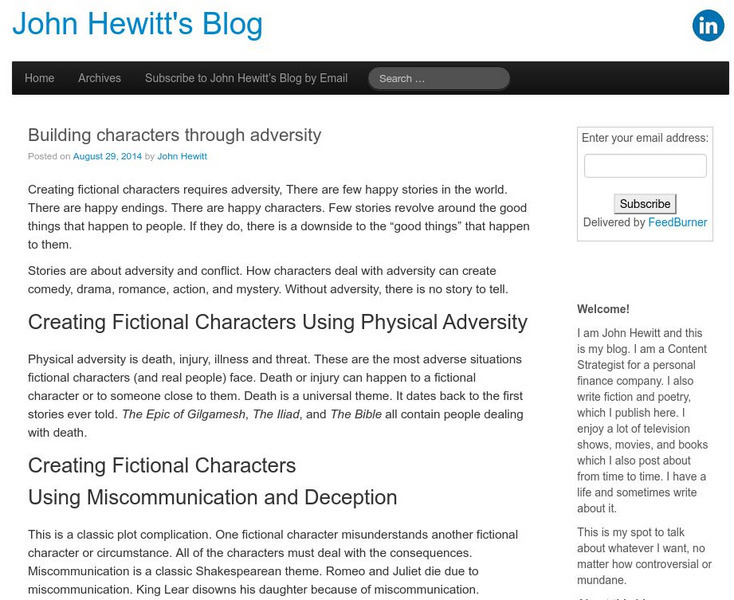

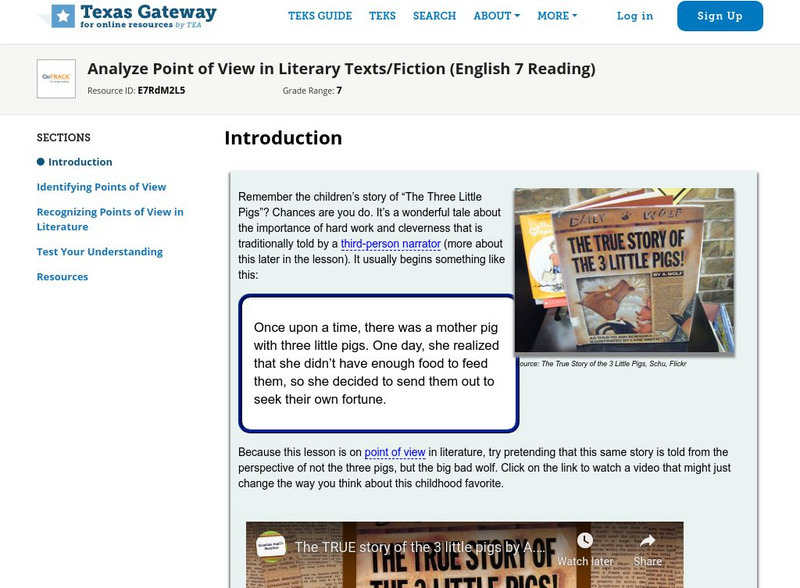

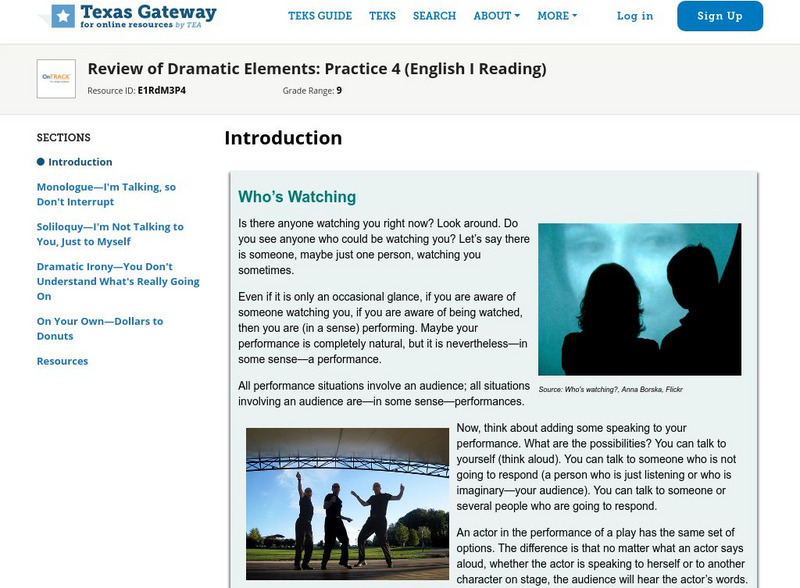
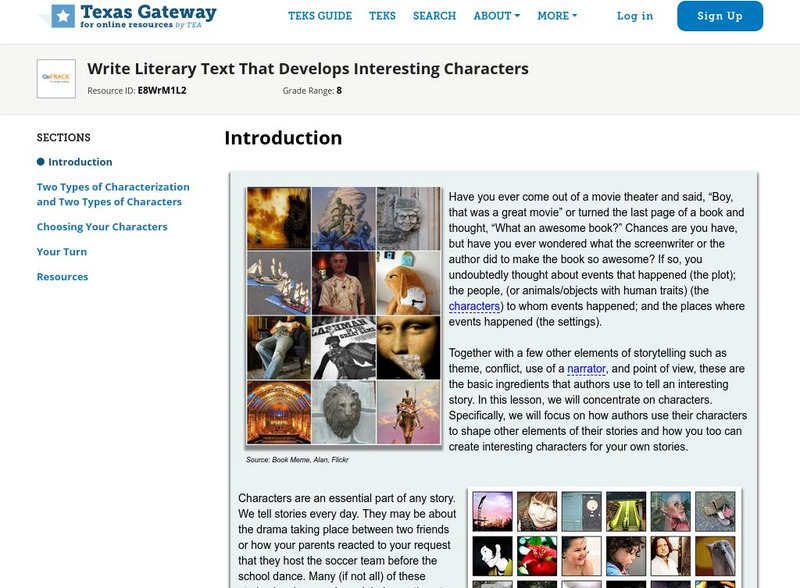

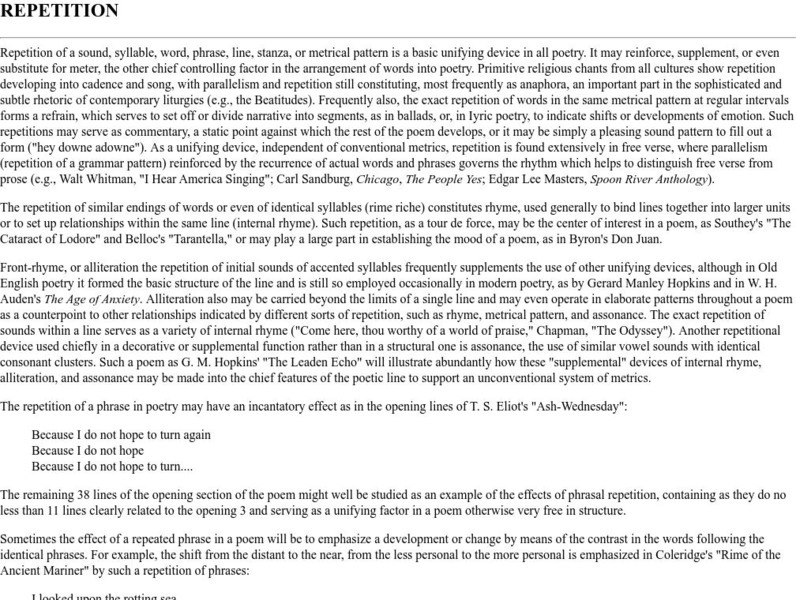


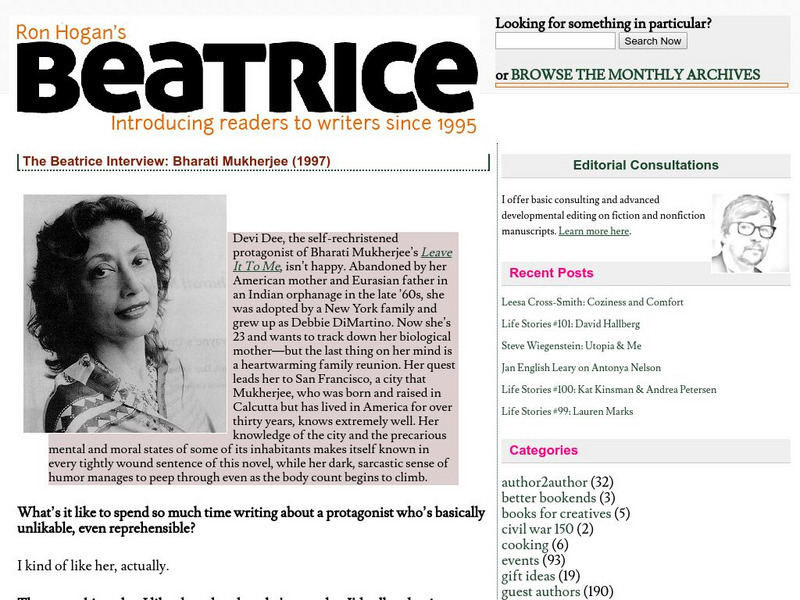


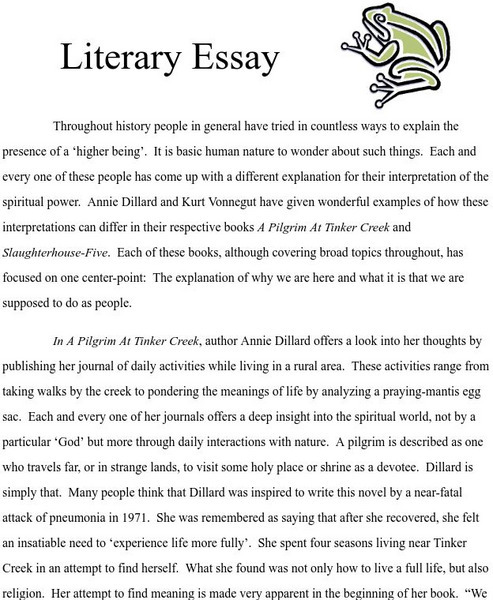

![Holt, Rinehart and Winston: Elements of Literature: Narrator Chart [Pdf] Graphic Holt, Rinehart and Winston: Elements of Literature: Narrator Chart [Pdf] Graphic](http://content.lessonplanet.com/resources/thumbnails/410058/large/bwluav9tywdpy2symdiwmduymc03nzcylxblamtwbi5qcgc.jpg?1589985144)





